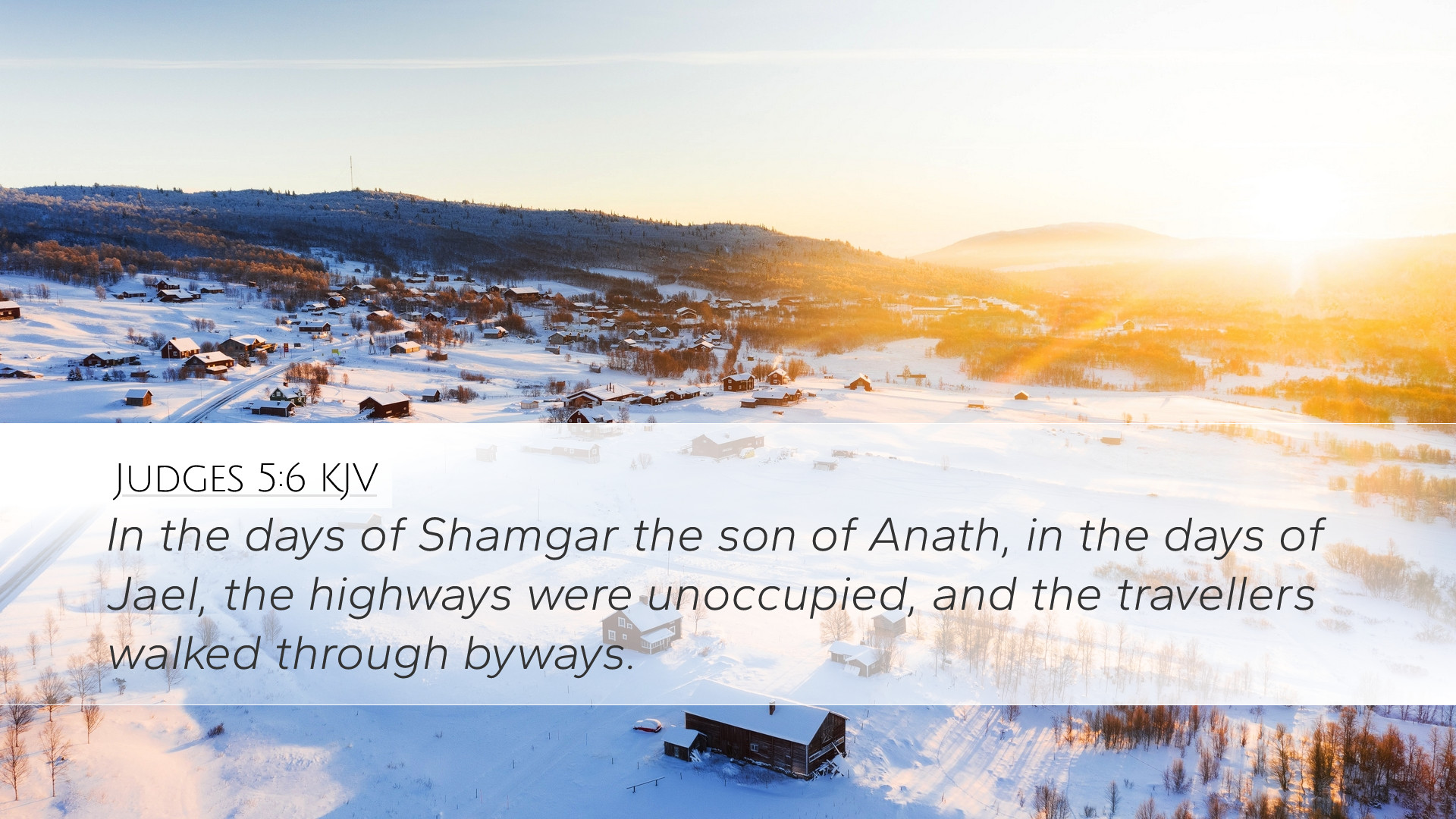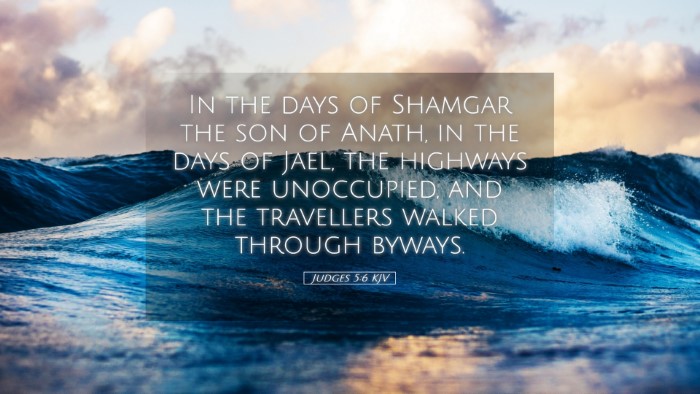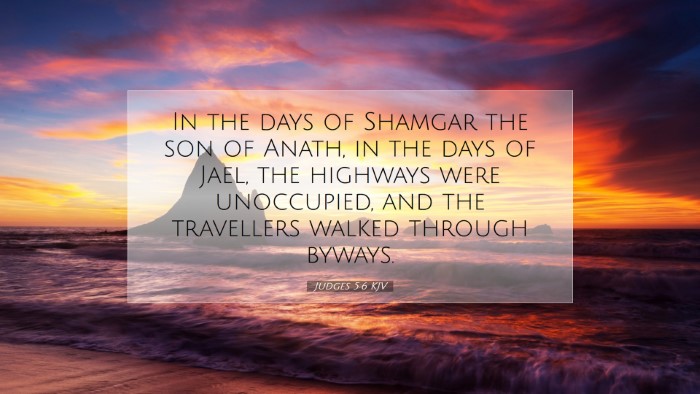Bible Commentary on Judges 5:6
The verse Judges 5:6 states: "In the days of Shamgar son of Anath, in the days of Jael, the highways were abandoned, and travelers took to winding paths." This passage, part of the Song of Deborah, illustrates the social and political climate during the oppression of the Israelites by Jabin, king of Canaan.
Contextual Overview
Judges 5 records the victory song of Deborah and Barak celebrating their deliverance from oppression. The surrounding verses frame a narrative of struggle, oppression, and divine intervention.
Historical Background
According to Matthew Henry, Shamgar is recognized for his bravery in delivering Israel from oppression, signified in Judges 3:31. His importance lies not only in his feats but in the era he represents — a time when Israel felt vulnerable and fragmented. Jael, another key figure in this narrative, is noted by Albert Barnes for her instrumental role in subduing Sisera, a commander of Jabin’s army.
Analysis of Key Themes
-
The Abandonment of Highways:
This reflects a society plagued by fear and lawlessness. Adam Clarke interprets this abandonment as indicative of a breakdown in order, where travelers were compelled to avoid main roads due to threats, thus illustrating the extent of insecurity.
-
Winding Paths:
The "winding paths" symbolize the deviousness and difficulty of the times, where the people had to resort to side paths. Matthew Henry remarks that this metaphor serves as a reminder of the Israelites' precarious existence under oppression.
Theological Implications
This verse serves as a vivid reminder of the consequences of disobedience and the neglect of God’s commands. In their suffering, the Israelites turned away from God, and this led to vulnerability against external threats. Albert Barnes notes that the neglect of God's law left them susceptible and confused, leading to a failure in recognizing Him as their protector.
Meaning of Shamgar and Jael
Both Shamgar and Jael are crucial figures, embodying courage and decisive action in the face of adversity. As per Clarke, their actions demonstrate that even during desperate times, God can raise unlikely deliverers. These characters highlight the importance of individual agency in God’s redemptive plan.
Application for Today
This scripture speaks to contemporary readers about the challenges of leadership and the state of society in turbulent times. It prompts a reflection on how leaders and communities respond to crises. The highways abandoned speak metaphorically to spiritual pathways forsaken in the face of societal issues.
Encouragement in Struggles
The passage encourages believers to recognize that even in the darkest times, God is present and able to work through individuals who are willing to stand for Him, as demonstrated through Shamgar and Jael. Thus, it calls on modern believers to be vigilant, active agents of change in their communities.
Conclusion
Judges 5:6 is a profound reflection on the state of Israel during a time of oppression but also serves as a beacon of hope. Through the lens of public domain commentaries, we understand more fully the historical context, the theological implications, and the necessary applications for our lives today. As we discern the condition of our paths, may we be encouraged to uphold righteousness and courage in an often treacherous world.


